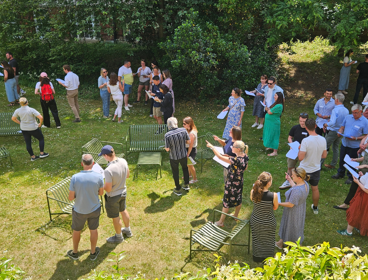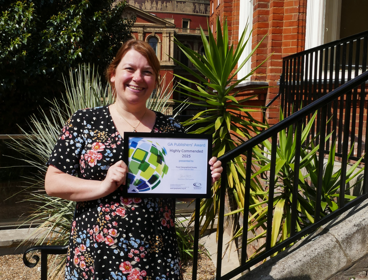We invited Mark Enser, geography subject lead at Ofsted and one of His Majesty’s Inspectors, to give an overview of the findings of Ofsted’s 2023 geography subject report, published earlier this week.
The report reveals significant improvements in the quality of geography education in schools since the previous 2011 report, while also highlighting areas for further work.
Ofsted’s recently published geography subject report is titled Getting our bearings and it aims to do exactly that. It is an invitation to pause for a moment as a subject community and take stock of how far we have come, and where we want to go next. The report is based on 50 research visits that took place last year to a representative sample of schools across the country. What we found will hopefully be of use not only to teachers and subject leaders, but also policy makers and subject bodies.
One of the most noticeable findings from these visits was the improvement in curriculum planning that has taken place since Ofsted’s previous subject report was published in 2011. That report found that geography was being lost in cross-curricular ‘topic’ approaches in primary schools, which emphasised generic skills rather than geographical knowledge. It also noted that geography was particularly weak in secondary schools at Key Stage 3. Pupils sometimes received very little specific geography education and the curriculum lacked challenge. What we now see in many schools is a well sequenced curriculum from Key Stage 1 to 3, with particular strengths in Key Stage 3 where leaders are ensuring the curriculum builds not only over a topic but over a series of topics. The recent visits also saw some strengths in how geographical knowledge is being developed in the early years foundation stage through the Understanding the world area of the curriculum.
However, our research visits also pointed to some areas where more care is needed. In most primary schools there was a sequence within each geographical topic, but little sense of the topics connecting and building over time, leading to pupils having a fragmented knowledge of the subject and struggling to answer questions about what they had learned. In secondary schools, exam specifications had often become a de facto curriculum for Key Stage 4. Where practice was strongest, leaders had considered how to create a curriculum from the exam specifications. However, this was very rare. In most cases leaders taught the content as laid out in the specification, simply working through it point by point. As a result, pupils struggled to connect different areas of the subject and see the bigger picture.
A third important finding from the visits was the role that fieldwork played in the curriculum. We talked to leaders about fieldwork prior to the Covid-19 pandemic and fieldwork happening now, and found there had been a reduction in the number of trips taking place since the pandemic, but little reduction in the amount of genuine fieldwork. This was because very little fieldwork, as opposed to field trips, had been taking place before the pandemic. Very few leaders, at any key stage, had thought about a curriculum for fieldwork or for developing other geographical skills. As a result, when pupils went out of the classroom, they were not developing a knowledge of how geographers collect, present and analyse data and reach conclusions. Instead, there were isolated events of out of classroom activity, which often lacked a geographical focus. There were some examples of very strong practice where the knowledge of how to complete fieldwork was treated as any other part of the curriculum, but this was rare.
Our report contains a range of findings, including areas of strength and areas where improvement is needed. My main hope is that these feed into our conversations as a subject community about what we want geography in schools to look like and it’s potential to shape how children and young people see and engage with the world.
Mark Enser
Geography Subject Lead at Ofsted



